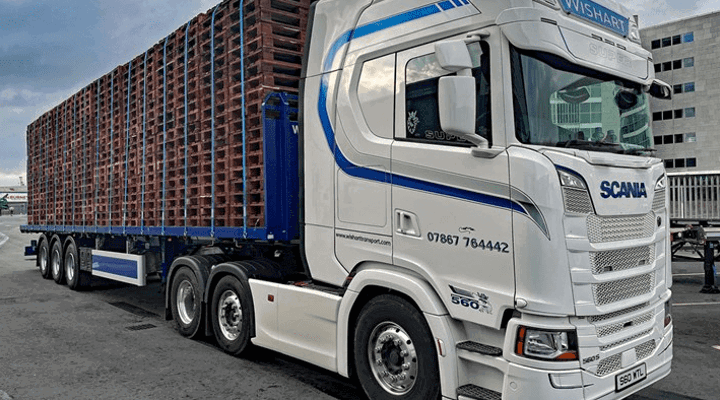10 June 2025
At IPP, we’re committed to reducing empty running and working closely with our logistics partners and customers to remove empty miles from their transport operations. Here, we take a closer look at the harmful effects of empty running and provide recommendations for reducing this practice through data, optimisation and collaboration.
What is empty running?
Empty running is the environmentally-harmful process of a vehicle returning to base without any goods on board. Essentially, it is the name given to vehicles operating within logistics and supply chains that travel without a load, including HGVs and smaller trucks.
The practice is also known as deadheading or empty backhauling ,and is often the result of imbalanced freight flows, where goods need moving in one direction much more than the other, and poor scheduling, which results in no load or a reduced load being available for a return journey.
What is the impact of empty running?
Empty running has a serious impact on the environment and reduces a business’ sustainability efforts.
The negative impact of running empty miles includes:
- Fuel waste
- Higher emissions
- Cost inefficiency
- Road congestion
- Supply chain inefficiency
Empty vehicles still consume fuel, increase a firm’s CO₂ footprint unnecessarily and increase the amount of traffic on our roads.
In addition, firms that run empty vehicles incur operating and staff costs with no revenue load while wasting transport capacity.
Improving supply chain planning and management helps to reduce empty miles and provides numerous benefits for businesses and the environment.
How prevalent is empty running in the UK?
The Department for Transport publishes statistics on the prevalence of empty running in the UK every year.
The latest available data from 2023 reveals that 5,776 million kilometres were travelled by GB-registered HGVs whilst empty – 30 per cent of all vehicle kilometres travelled during the same period (18,987 million kilometres). Data from the previous year shows a similar picture, with 30 per cent of HGV journeys running empty.
As the UK transport sector was responsible for producing 111.6 million tonnes of CO2 in 2023 alone, 33.5 million tonnes of CO2 were wasted on empty running.
How does IPP reduce empty running?
Addressing the issue of empty running is vital to reduce the carbon emissions produced by the transport sector and develop more sustainable logistics practices.
To support our vision of sustainable supply chains, IPP has developed sustainable logistics partnerships.
We do this by optimising the transportation of pallets to reduce emissions and fuel consumption with tactics that include strategic routing, maximising load efficiency, and utilising eco-friendly vehicles whenever possible.
IPP works with multiple hauliers throughout Europe, with a focus on optimisation, efficiency and sustainability, to ensure timely delivery of our pallets to our customers and the return from retail to our depots.
Our long-term UK and Ireland partners include Bedfordshire haulier F. A. Hawkins and Wishart Transport Ltd in County Armagh.
By working collaboratively with our logistics partners, we improve vehicle utilisation and load sharing to reduce empty running.
Learn more about our collaborative logistics solutions.
How to reduce empty running
Data and collaboration are the key to reducing empty miles in the supply chain.
- Route optimisation – sophisticated transport management systems (TMS) can be used to develop improved route planning to ensure load pickups and deliveries are balanced in both directions
- Collaborative logistics – working in partnership with other companies or via logistics networks can increase vehicle utilisation
- Telematics and data - using real-time data enables transport companies to match loads dynamically and identify and reduce empty miles
- Exchange platforms – utilising digital platforms can enable hauliers to identify available loads and swap empty miles for return loads
By adopting collaborative approaches and leveraging technology, businesses operating with the logistics and supply chain sector can significantly reduce empty running and benefit from a reduction in operational costs.
Learn about sustainability at IPP, or find out more about our sustainable wooden pallets.
